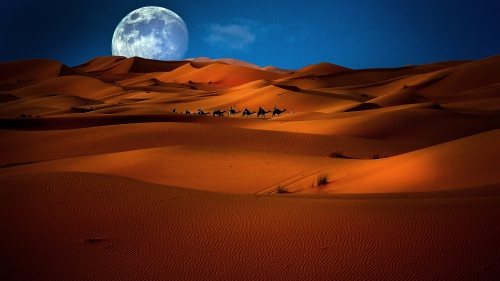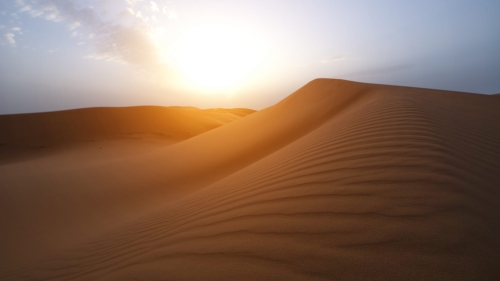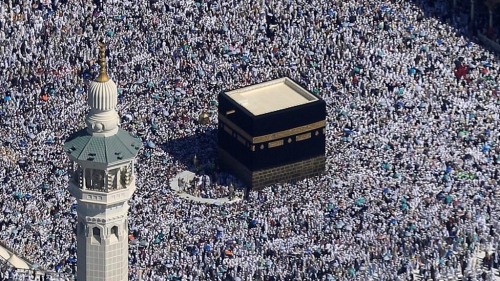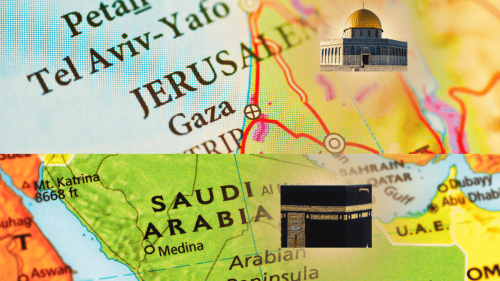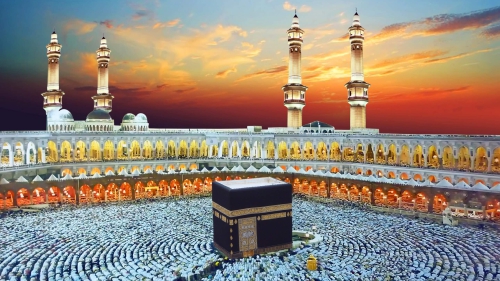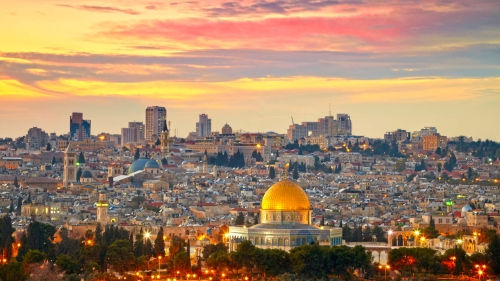The Prophetic (s) Ascension and Humanism

One of the most remarkable events in the history of the world was the Night Journey and Ascension. This Journey is not only spectacular because of what it meant to the Prophet (s), but also for what it means for rest of humanity.
According to the accounts in the Quran and Prophetic narrations, the Prophet (s) was taken overnight from Mecca to Jerusalem,. "Holy is He Who carried His servant by night from the Holy Mosque (in Mecca) to the farther Mosque (in Jerusalem.) (Quran 17:1) There he led all the other Prophets (including Abraham, Moses, David and Jesus) in prayers.
After which he began the Ascension, seeing many amazing things including heaven and hell, and meeting many of the prior Prophets on the way. Finally, (as described by al-Mubarakpuri in the Sealed Nector) "he was then presented to the Divine Presence and experienced the thrill of witnessing the Divine Glory and Manifestation at the closest possible propinquity." God describes his astonishing experience during the Ascension in the Quran,
While he was in the highest part of the horizon: Then he approached and came closer, And was at a distance of but two bow-lengths or nearer; So did God convey to His Servant what He (meant) to convey. The Prophet's mind and heart in no way falsified that which he saw. Will ye then dispute with him concerning what he saw? (Quran 53:7-12)
For the lover of God there could be no greater pleasure than an invitation by the beloved. It is a returning to God sought by humankind ever since the primordial covenant in which they were asked by God: "Am I not your Lord?" and they replied "Yes! We do testify!" (Quran 7:172). The Prophet (s) was granted what the rest of humanity is longing for.
All of this happened within a matter of a few seconds of earthly time, and then he was back in Mecca. The pagan Meccans mocked him at the unbelievable "fairy tale" he recounted. For his early followers this was a test, would they trust the Prophet (s)? Abu Bakr, his closest companion at the time, passed without hesitation by stating, "if Muhammad (saw) said it, then it is true." Trust in the Prophet (s) was to become the test of faith.
The unique honor of this magnificent journey attests to the Prophet's (s) status as the beloved of God and the perfect human being. He is the model for the rest of humanity to emulate. Through him, however, the rest of humankind is also elevated, as one of theirs is honored by the Creator and Sustainer of the worlds.
For Iqbal, this humanism is reinforced by the actual nature of the prophetic experience while at the climax of his journey. At the point of the highest ascent, where he is in the closest proximity to his Lord, Muhammad (s) maintains his individuality. The Quran describes his state as: 'His eye turned not aside, nor did it wander' (Quran 53:17). The Prophet (s) did not find himself losing his own identity in God but rather he was able to, in Iqbal's words, "retain full self-possession, even in the case of a direct contact with the all-embracing Ego." Others, as Iqbal writes in poetic form, such as Moses on Mount Sinai were unable to absorb God's majesty and collapsed:
'Moses fainted away by a mere surface illumination of Reality.
Thou seest the very substance of Reality with a smile!'
In this Prophetic achievement, there is great hope for humanity. There is a message of humanism, of possibility and of great potential. The heavens and earth, even God himself is within reach for those who aim to perfect themselves and seek the Almighty.
The journey, however, does not end with the Prophet's (s) experience of God. It continues with his return to earth. He returns with a renewed sense of purpose to better humanity with his Divine message and beautiful character. We learn then that a spiritual return to God is not sufficient; rather it is merely a necessary landmark in man's larger journey to engage with the world around us to affect positive change. A change, man is capable of, which will ultimately lead to God's pleasure.
May the peace, blessings and prayers of God be upon His beloved Prophet (s), the final Messenger and our Master Muhammad (s).
*****
Dr. Macksood Aftab, DO, MHA, is a Neuroradiologist, and candidate for Masters in the History of Science at the Harvard University Extension School he can be reached at maftabfas.harvard.edu.
Topics: Jerusalem, Makkah (Mecca), Night Journey (Isra And Miraj)
Views: 9804
Related Suggestions
Highly appreciated brother. I wish I can have the pleasure of meeting
you one day to learn more.
thank my father whom I met as a muslim and also train me as a
muslim.if not it would have be a big looser if I found my in a
expiring religion.






